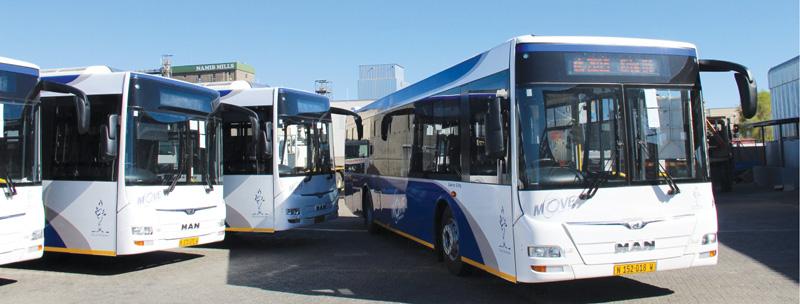
Moody’s downgrades Namibia’s rating to Ba1, maintains negative outlook

Statement issued by the Minister of Finance, Mr Carl-Heinz Schlettwein
The Government of the Republic of Namibia took note with concern – of the decision by Moody’s Investor Services to downgrade Namibia’s international credit rating to Ba1, from Baa3- in December 2016, while maintaining its negative outlook. This essentially put Namibia’s international debt issuances in the category of “junk status”, an assessment that we do not concur with for reasons elaborated in subsequent paragraphs.
We further note, that Namibia’s local currency bond and bank deposit ceilings were also lowered to A2 from A1; the foreign currency bank deposit ceiling to Ba2 from Baa3; and the foreign-currency bond ceiling to Baa2 from A3. While these ratings, still reflect investment grade, we also do not think that domestic economic conditions warrant a downgrade at this point in time.
In December 2016, following the tabling and approval of the Mid-year budget review with its accompanying fiscal consolidation programme, Moody’s reaffirmed Namibia’s credit rating at the investment grade notch of Baa3- and revised the ratings outlook from “stable” to “negative”, reflecting a number of risk factors which need to be addressed.
The Namibian Government has taken steps to address these risk factors pointed out by Moody’s in December 2016. Although we understand that countries credit ratings change with the changing conditions in the country, it is the considered opinion of the Namibian Government.
After having considered the statement the Namibian Government holds the strong view that a substantive rating change should have been preceded by an in depth assessment and engagement of the Namibian authorities instead of a desk review of developments in the corridors of international financial head quarters.
This recent rating acting by Moody’s relied merely on an exchange of emails on a single item, that of outstanding invoices and how Government is planning to settle them. This is highly regrettable. A thorough assessment taking all factors into consideration would have been the proper way in dealing with reviewing Namibia’s sovereign credit rating.
Government would like to use this opportunity to put a number of key factors into proper perspective.
Firstly, with regard to the assertion that Namibia’s fiscal strength has eroded due to sizeable fiscal imbalances and an increasing debt, the view of the Government is as follows.
A review of Namibia’s rating only 4 months into the budget implementation for 2017/18 financial year is made too early and, therefore, on a very narrow base and may contain speculative conclusions on the performance of the budget for the whole financial year.
The process followed by Moody’s is, therefore, not systematic as we are busy developing the Mid-Year budget Review and better informed ratings action and effective country assessment could have benefited from the mid-year budget review planned for October 2017.
The consolidation approach to improve the public finance situation for the Government is credible and has not changed. It is in line with the budget tabled by the Minister of Finance to Parliament towards end February 2017.
No additional borrowing has been incurred to pay for the outstanding invoices (to date N$1.7 billion worth of outstanding invoices have been paid) and funds paid are from own cash reserves and budgeted funds.
All borrowings undertaken this year are in line with the expectations in the budget and therefore the statement from Moody’s that there are “sizeable fiscal imbalances and an increase in debt burden” does not hold.
Our records show a current debt level of 41.9 %, which is within the threshold of 42 % for Middle Income Countries of the size of Namibia to be considered sustainable.
The debt level of 43 % is, therefore, overstated by Moody’s. Moreover, Namibia’s overall voluntary debt ceiling of 35% of GDP has been conservative and is well within the SADC convergence threshold of 60% of GDP.
The debt ceiling was intentionally conservative to demonstrate Government’s commitment to prudent fiscal policy and to build up buffers for times of economic hardships. It is not the first time that we have exceeded out debt threshold, and we have demonstrated during times of previous external shocks our resolve to reduce debt to within sustainable limits. The resolve of the Namibian Government towards prudent, sustainable and stable macroeconomic policies cannot be questioned.
The statement in the release that “Other sources of potential deterioration are shortfalls in Southern African Customs Union (SACU) revenues relative to forecasts, as well as expenditure over-runs in the context of upcoming SWAPO leadership elections (end-2017) and presidential elections (2019) is purely speculative and not evidenced at all. The SWAPO Congress is an inner Party process and the insinuation of budget over-runs being caused by the leadership and presidential elections are irresponsible.
SACU revenues are locked into a formula driven process and are therefore de facto guaranteed for the current financial year under review. Further, expected SACU revenue for FY2018/19 – 2019/20 was reduced deliberately by 10% to be conservative in our approach and compensate for possible volatility in that revenue stream.
Secondly regarding the view of limited institutional capacity to manage shocks and address long-term structural fiscal rigidities, the situation is as follows:
The budget execution ranged between 95 – 100% for the preceding 10 years and therefore a statement that projections always differ from actual out-turns can not be factually supported.
It is recognized that Namibia’s small and open economy remains vulnerable to the externally induced shocks.
The most prominent risks are currency volatility, commodity prices, climatic conditions and regional and global economic developments. Large portions of Namibia’s foreign debt exposure in naturally hedged, and for the EURO bond debt coupon obligations are fully hedged. Most of the remaining foreign debt is ZAR denominated and is therefore not exposed to currency volatility.
One of the positive development for Namibia which was ignored by Moody’s in this assessment is the level of foreign exchange reserves that increased to 5.3 months of import cover during the second quarter 2017. This is a crucial variable in credit worthiness that can not be ignored. It is puzzling that at a time when Namibia’s import coverage has increased, Moody decides to downgrade our credit ratings.
Domestic revenue has also improved substantially during the first four months of the current financial year. This is mainly because of improving global and regional economic performance, coupled with better collection realized through the tax incentive scheme (about 40 % of total revenue collected in the first 4 months). Key economic sectors such as Mining and Agriculture have also started to rebound improving economic and revenue prospects.
Thirdly with regard to risk of renewed Government liquidity pressures, Namibia Government would like to make the following pertinent observations.
Since the beginning of the current financial year, the demand for Government debt securities, to finance the budget deficit, improved substantially. That is mainly on account of policy response – fiscal consolidation which is taking traction and constant open engagement with the market players. The deficit has been reduced from a high of 8.3% FY2015/16 to 6.3% in FY2016/17 and preliminary print affirms that position.
The pressure is even relieved further by the improved liquidity in the banking sector, boosted by the payment of the outstanding invoices and expected improvement in the domestic revenue collection. The Government’s resort to local sources for funding the budget deficit is optional, aimed at supporting the development of local capital markets. The choices of such domestic sources are also optional demonstrating the need to diversity our financing sources.
The new policy instruments such as Public Private Partnerships (PPP) and the Namibian Industrialisation Development Agency (NIDA), as well as the ongoing Public Enterprises Reforms will support the fiscal consolidation efforts of Government and help to put the Economy back on the higher growth trajectory and address the structural challenges of economic reliance on commodities, high unemployment and poverty.
This downgrade, relative to the December 2016 rating action, reflects Moody’s view of the effect of the 2017 spending arrears standing at 1.3 % of GDP now being implemented on a fast-track basis in excess of the 2017/18 budget which Moody’s view’s as a significant deterioration of the government fiscal position, public debt and a further build-up financial vulnerabilities, thus compromising the effectiveness of the budget policy framework.
In the wake of this ratings action based on four-month assessment of budget implementation, the Government of the Republic of Namibia wishes to reaffirm its firm commitment to a package of policy responses announced in the, 2016/17 budget review, 2017/18 budget and reaffirmed severally by the Head of State and Government in the National Addresses.
In conclusion the Government of the Republic of Namibia would like to reiterate its unwavering commitment to:
The fiscal consolidation stance announced in the 2017/18 budget to stabilize growth and eventually reduce public debt;
* Strengthening institutional, policy frameworks and appraisal capacity to manage fiscal risks effectively;
implementing time-bound tax administration reforms to enhance buoyancy of domestic revenue generation;
* Fast-tracking of implementation of the announced structural reform measures to support higher, inclusive growth;
* Reducing personnel-related expenditures;
* Undertaking a 2017/18 mid-year budget review to consistently consolidate these measures.
The Government recognizes that fiscal consolidation takes time to achieve its intended objectives and that implementation of such policy should avoid the risks of reversal in the development indices, given the unique circumstances of Namibia. The corrective policy response since the implementation of the 2016/17 budget review has yielded meaningful results including:
– growth in spending is curtailed and aligned to an expected, realistic revenue outlook;
the reduction in the budget deficit over the past two years and announced the medium-term fiscal consolidation programme;
– international reserves have improved to 5.3 months of import cover by mid-2017;
– reforms are implemented to diversify infrastructure financing options;
– medium-term growth prospects have improved as recognized by Moody’s.
The Government summons the collective support of all Namibians and call on the private sector and investor community to remain positive and supportive during this adjustment process.
Issued by : CHG Schlettwein
Minister of Finance, Government of the Republic of Namibia.
11 August 2017. 22:00












































